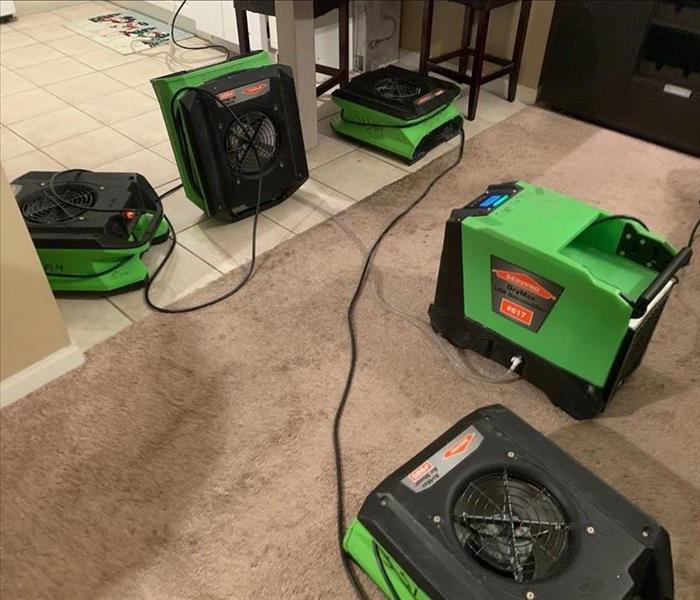Protecting Your Home Against Plumbing Failures
10/16/2024 (Permalink)
 If you do experience a plumbing failure, don’t hesitate to reach out to our team for prompt and professional assistance.
If you do experience a plumbing failure, don’t hesitate to reach out to our team for prompt and professional assistance.
Plumbing issues can strike at any time, leading to significant water damage if not addressed promptly. At SERVPRO®, we understand the importance of safeguarding your home from potential plumbing failures. With a proactive approach, you can minimize the risk of leaks, burst pipes, and other plumbing-related disasters. In this blog, we’ll discuss the steps you can take to protect your home from plumbing failures and ensure your property remains safe and dry.
Regular Maintenance is Key
One of the most effective ways to prevent plumbing failures is through regular maintenance. By routinely inspecting your plumbing system, you can identify and address small issues before they become major problems. Check for leaks under sinks, around toilets, and near appliances such as dishwashers and washing machines. Additionally, keep an eye out for signs of corrosion or wear on pipes and fittings, as these can indicate potential failure points. Regularly flushing out your water heater and ensuring that your drains are clear of debris can also help maintain the integrity of your plumbing system.
Insulate Your Pipes
Cold weather is a common culprit behind burst pipes, which can lead to extensive water damage in your home. Insulating your pipes, especially those in unheated areas like basements, attics, and garages, is a simple yet effective way to prevent freezing. Pipe insulation can be easily installed and provides an extra layer of protection against the cold. Additionally, during extreme cold snaps, it’s a good idea to let your faucets drip slightly to keep water moving through the pipes, reducing the risk of freezing.
Be Mindful of What Goes Down the Drain
Clogged drains are another common cause of plumbing failures. To protect your pipes, be mindful of what you flush or wash down the drain. Avoid disposing of grease, oil, coffee grounds, and large food particles in the kitchen sink, as these can lead to blockages. In the bathroom, use a drain cover to catch hair and soap scum, which are frequent culprits of clogs. Regularly cleaning your drains with a mixture of hot water, baking soda, and vinegar can also help prevent buildup and keep your plumbing system running smoothly.
Know the Location of Your Main Water Shutoff Valve
In the event of a plumbing emergency, knowing the location of your main water shutoff valve is crucial. This valve controls the flow of water into your home, and shutting it off can prevent further damage if a pipe bursts or a major leak occurs. Make sure all household members know where the shutoff valve is located and how to operate it. Regularly check the valve to ensure it’s functioning properly and isn’t rusted or stuck.
Install a Leak Detection System
For added peace of mind, consider installing a leak detection system in your home. These systems can alert you to potential leaks before they escalate into significant issues. Some leak detectors can even be integrated with smart home systems, allowing you to monitor your plumbing from your smartphone. With a leak detection system in place, you’ll have an extra layer of protection against water damage caused by plumbing failures.
Taking proactive steps to protect your home against plumbing failures can save you time, money, and stress in the long run. Regular maintenance, pipe insulation, mindful disposal habits, and the installation of a leak detection system are all effective ways to safeguard your property. At SERVPRO, we’re ready to help you prevent and address any water damage that may arise from plumbing issues. If you do experience a plumbing failure, don’t hesitate to reach out to our team for prompt and professional assistance.






 24/7 Emergency Service
24/7 Emergency Service